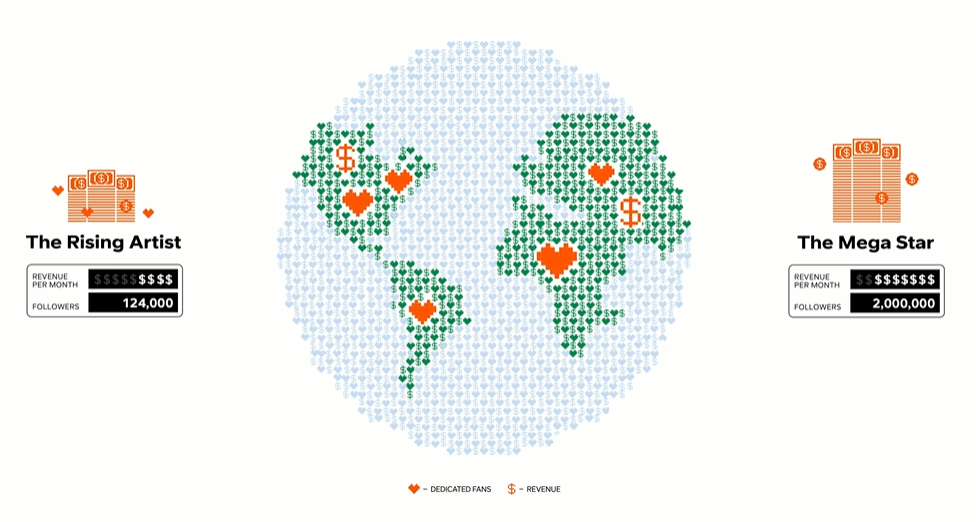SoundCloud’s fan-powered royalties explained
SoundCloud’s user-centric payment system turned a lot of heads but how does it work?
A lot of discussion has surrounded SoundCloud‘s new payment system, which they announced earlier in 2021. The revolutionary new method redefines how they allot payments to artists and has the potential to significantly increase the income of smaller artists.
There has also been a lot of discussion over whether it will be ultimately better for artists with charges and a surprisingly small percentage cut. When the news broke there was confusion as to how SoundCloud’s new royalty pay-out system would work. Below, we clarify exactly how it works and for who.
What are fan-powered royalties?
The standard system of paying artists and labels for streaming services is called a ‘pro-rata’ system. This works by collecting all of the revenues made from subscriptions and – for services offering free streaming – advertising revenue into an overall ‘pot’. The money is then distributed based on the percentage of overall streams artists and labels have received.
For example, if a huge artist like Drake gets 20 million streams in a month and that counts for 5% of all the streams that month then on a pro-rata system Drake and his representatives would receive 5% of the streaming revenue.
How a user-centric payment system (UCPS) like the one SoundCloud are launching works means that the percentage is based on every single listener individually. So if a listener pays $10 for a subscription and after the streaming service takes a cut there is $7 left then that is what goes to artists/labels. If that listener has only listened to one artist – who they’re clearly a superfan of – then the whole $7 would go to them.
This can add up to make a huge difference for smaller artists, whose listeners might be dedicated fans and listen to them but whose overall streams pale in comparison to the grander scheme. This is why this method is touted as a much fairer payment system by many independent artists and labels.
Who is eligible for SoundCloud’s fan powered royalties?
Sadly this new system won’t apply for all artists who have their music available on SoundCloud and monetised – certainly not to start with.
The artists and labels eligible for SoundCloud’s UCPS will be those directly distributing and monetising their music through SoundCloud. This is because they get to set the terms as the relationship is directly with the artists.
Deezer, the French music streaming service, have been attempted to trial a UCPS in France whilst YG Entertainment’s Vibe have also spoken on their wishes to introduce the system. However, both have faced opposition from the industry – and no surprise as the power of influence lies largely in major labels who benefit from a pro-rata system.
So this means that artists receiving payments directed through SoundCloud’s UCPS will be Pro Unlimited Subscribers in the Premier Program, Repost by SoundCloud subscribers, and members of Repost Select.
Do SoundCloud take extra charges?
This is the topic that raised controversy when SoundCloud announced their decision. For a start, to distribute with SoundCloud directly you will often be paying an upfront cost. Depending on how much an artist is earning, the cost may well pay for itself.
Then there is the ‘45%’ number, reported by Vice at first. It was reported as though SoundCloud were then taking a 45% cut of the profits before distributing revenue out to artists and direct labels. This would of course be a huge number, and significantly higher than the average cut of streaming services – roughly 30%.
In an email clarifying their UCPS system, I was told: “SoundCloud does not keep 45%. It pays out mechanical royalties and performance publishing royalties, which vary by country, as well as costs to payment providers, among many other costs. SoundCloud does keep some profit, but it is in line with if not lower than the industry average.”
This seems to suggest that the artist still receives roughly 55% of their revenue, but SoundCloud’s cut does not make up the entirety of the rest of it. SoundCloud presumably take around 25-30% of the overall streaming revenues.
This still raises the question of how many artists will really be profiting – even with the extra revenue stream – after navigating upfront payments and a roughly 45% chunk of their earnings taken. Nonetheless, the system itself makes a lot of sense and I – the author – believe it to be a move in the right direction that could revolutionise fairness in streaming were it to be introduced by major streaming services like Spotify and Apple Music.
RouteNote are an independent digital music distributor working with hundreds of thousands of artists and labels around the world. We also work with SoundCloud on our SoundCloud Network which helps artists monetise their music for free.
